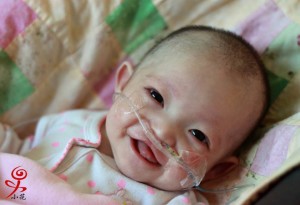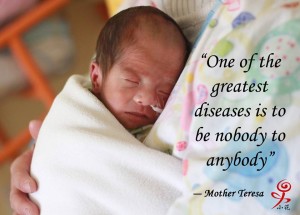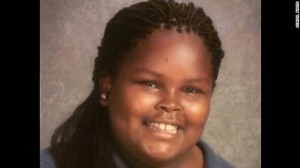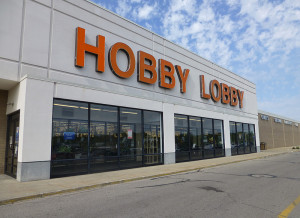Dec. 29, 2013 (
Americanthinker.com) - Readers will have to forgive me for sounding angry, but the recent news involving GLAAD has enraged me.
Mark Steyn's most recent piece in
National Review sums up some of the worst aspects of the epic saga known as GLAAD v.
Duck Dynasty.
Steyn resonates with me on one key point: yes, GLAAD is ridiculous and
foolish. We knew this. But some conservatives who should know better
are truly pathetic. A
National Review editor scolds Steyn for being "puerile," while people on
Fox News say
that Phil Robertson should have been suspended. Pusillanimous
obeisance to false ideology isn't exclusive to left or right.
A bunch of people on the left (see
here and
here)
called GLAAD out, and I'm glad they did. Yet a bunch of people on the
right are still terrified of GLAAD, or else actually believe that it's
defamation to say negative things or think negative thoughts about
homosexuality.
In case you don't know the full extent of GLAAD's fascism, let me tell you what GLAAD did to me.
I won't hyperlink this, but if you go to GLAAD's website and seek out
their "commentator accountability project," you will find my name. This
is GLAAD's blacklist. Within hours of GLAAD's publication of my
addition to the list, which amounts to an excommunication from polite
society, an e-mail was sent to the president of my university, along
with dozens of other high officials in California, with the
announcement: ROBERT OSCAR LOPEZ PLACED ON GLAAD WATCH LIST
The e-mail stated clearly that as a result of my being placed on this
list, I would never get a direct interview in the United
States. (Whoever "they" are, they made good on the threat, because when
I was brought onto
Al Jazeera, they made sure that I was the
only one critical of gay adoption, versus two hosts and two other
panelists who were for it, and the host cut my microphone.)
According to the
press release sent to my
university, any media outlet introducing me would be bound to introduce
me as an "anti-gay activist" certified by GLAAD as a bigot. When I read
the claims of this e-mail, I wondered if this would be true -- would
media in the United States really introduce me by saying I was certified
as "anti-gay" by GLAAD?
Well, the answer to that question remains mostly unanswered. Aside from that one fling on
Al Jazeera,
since GLAAD placed me on their blacklist, no secular media outlet has
invited me on its show in the United States. In-depth interviews with
me have been broadcast in Chile, Russia, France, Ireland, and a number
of other nations. In the United States, Christian broadcasters like the
American Family Association and Frank Sontag's "Faith and Reason" show
in Los Angeles have interviewed me. And I'd been interviewed, prior to
the GLAAD blacklisting, by Minnesota affiliates of NBC, CBS, Fox, and
NPR, as well as a number of newspapers. Since GLAAD's blacklisting,
none.
Prior to GLAAD's blacklisting, I had received calls from people at
universities discussing their interest in having me come to campus and
give speeches. Three were working with me to set up dates. Since
GLAAD's blacklisting, none. Those who had discussed this with me said
point-blank that their superiors did not want to create controversy.
That is the power of GLAAD. There are other people on the watch list
-- Maggie Gallagher, Ryan Anderson, and Robert George, all of whom I
respect and all of whom make regular appearances on television. When
GLAAD excommunicates them, there might be some hurt feelings, but it
isn't quite the fatwa that it was for me. These other traditionalist
spokespeople have enjoyed some advantages: they are not part of the gay
community themselves, and they belong to well-established conservative
groups such as the Heritage Foundation. So I surmise that for them,
being blacklisted by GLAAD isn't
really the end of the world.
Being blacklisted by GLAAD was the end of my world. (It just so
happens I entered a new, happier one, but that doesn't take away from
the terror caused by their omerta.) Even though I wrote
The Colorful Conservative,
I am too colorful for right-wing think-tanks, too vulgar for Beltway
Republicans, too much a fan of Sarah Palin for the Big Boys down in
D.C. I'm too queer for the legit crowd, and GLAAD basically put the
word out to the queers not to talk to me anymore. Old friends and even
some family members took GLAAD's marching orders and have summarily cut
me out of their lives. And when I mean cut me out, I mean we will never
be in the same room again. One person very close to me, who works in
the entertainment industry, was accosted at a dinner and told in no
uncertain terms that if he didn't join in denouncing me, he'd have
difficulty finding work. I was less important than his shot at getting
better contracts -- so gosh, I miss him.
I have only my tenure, my experiences, and my blog. I'm not rich. I'm
not white. I'm not straight. I was raised by a lesbian and had to
climb up to the humble perch where I am now, out of the lowest and
smelliest swamps of gay America. I was cursed with a lisp when I was
young and never won respect for my writing as an adult. Everything has
always been a battle, just to survive --
as it is for most gays outside
the Beltway, by the way. Somehow, amid the ravages of AIDS,
homophobia, racism, class snobbery, bullying, and every possible
disadvantage you can name (save perhaps sexism), I managed to make
myself a writer, learn eight languages, write books, form a family, find
a relationship with God, and last, get tenure. It's a rare professor
who can say he survived a tenure review with as many adversaries as mine
involved -- which allows me the small pride of saying that as modest a
place as CSU Northridge is, I
really earned my keep. The slightest blemish on my file would have sent me to the almshouse.
None of these difficulties was quite like what happened with
GLAAD. Though I am part of the LGBT community, I was deemed a
"non-person," someone invisible. It's easy to see why it was necessary,
in a Machiavellian sense, for GLAAD to do this in 2013. They have been
using the image of "gay families" and "children of gay couples" to
maximum advantage -- in fact, in the latest iteration of GLAAD's duel
with Phil Robertson, GLAAD wants him to sit down and talk to "gay
families." I am certain this will involve dragging some hapless child
who doesn't want to be there into a confab, where overbearing gay
parents use the
kid as a human shield.
America doesn't know that this is part of
same-sex parenting, because Americans have been blocked from hearing from
me,
Dawn Stefanowicz,
Jean-Dominique Bunel, "
Janna,"
Manuel Half,
Rivka Edelman, and the blogger known as "
the Bigot"
-- just some of the many people I've come to know over the last year
and a half, who have the human stories to dispel the myth that all is
well with "gay families." This scares the crap out of people at
GLAAD. It scares the crap out of them that I'm a professor and fluent
enough in the way research works to know that the "consensus" on
same-sex parenting is a
fraud. It
scares the crap out of them that I have a scholarly record in
African-American Studies and queer readings of Thoreau and Whitman, so
they can't write me off as a wacko, unwashed homophobe.
It scares the crap out of them that I know they're lying, and if people had a chance to hear me, they'd know, too.
So it's easier to engage in a blackout: make a few phone calls, send out some
press releases, marshal the usual success stories, trot out the starry-eyed youths with the "I Love My Two Dads"
signs, and cue up some home videos of lesbian moms with toddlers. Give them some of the razzle dazzle.
GLAAD is hoping that the current surge of anger over Phil Robertson will begin and end with
Duck Dynasty,
and then the rest of us who have been erased and whose lives have been
destroyed by this totalitarian organization can be out of the way
again. Broom, meet rug -- sweep the human waste underneath, march on to
the next court case, and proclaim victory.
There's only one way that GLAAD will come out of this kerfuffle
unscathed -- if you, the conservatives of America, let them. Please
don't. This is much bigger than one reality show.
Robert Oscar Lopez edits English Manif.
Re-published with permission from American Thinker
Source: LifeAction News






 Last
week, an Alameda county court in California determined that Jahi
McMath, a teen who was declared “brain dead” after a botched tonsil
surgery, could be taken off of her ventilator on Monday, December 30, in
accordance with the hospital’s wishes. McMath’s family has resisted
every effort by the hospital to take ventilator support away from Jahi
after a team at the hospital caused Jahi to slip into a state of brain
death.
Last
week, an Alameda county court in California determined that Jahi
McMath, a teen who was declared “brain dead” after a botched tonsil
surgery, could be taken off of her ventilator on Monday, December 30, in
accordance with the hospital’s wishes. McMath’s family has resisted
every effort by the hospital to take ventilator support away from Jahi
after a team at the hospital caused Jahi to slip into a state of brain
death. A
few thoughts today and a few more tomorrow as we are just hours away
from when the impact of ObamaCare really hits the American
populous—January 1, 2014.
A
few thoughts today and a few more tomorrow as we are just hours away
from when the impact of ObamaCare really hits the American
populous—January 1, 2014.
 In
an article in the American Medical News (Diane M Gianelli, “Abortion
Providers Share Inner Conflicts,” American Medical News, July 12, 1993),
a counselor at a Dallas abortion clinic talked about how she deals with
the stress of doing her job. In her own words:
In
an article in the American Medical News (Diane M Gianelli, “Abortion
Providers Share Inner Conflicts,” American Medical News, July 12, 1993),
a counselor at a Dallas abortion clinic talked about how she deals with
the stress of doing her job. In her own words:

 If
Belgium continues on its reckless path towards child euthanasia, as
seems likely, what will the conversations look like that precedes the
killing of a child?
If
Belgium continues on its reckless path towards child euthanasia, as
seems likely, what will the conversations look like that precedes the
killing of a child? Over the next three days NRL News Today will include some “year in review” stories. They are fun to write and useful overviews.
Over the next three days NRL News Today will include some “year in review” stories. They are fun to write and useful overviews.









